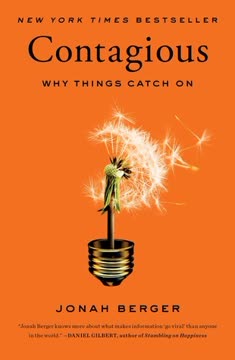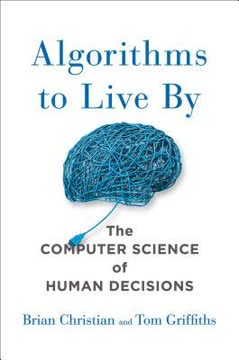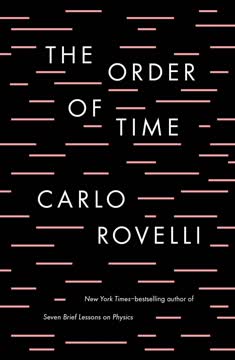가지 주요 요점
1. 변화와 불확실성을 받아들이기
Tempora mutantur, nos et mutamur in illis: '시대는 변하고 우리는 그 속에서 변한다.'
변화는 피할 수 없다. 역사적으로 기술 발전은 예측할 수 없는 방식으로 사회를 변화시켜 왔다. 중요한 것은 이러한 변화를 저항하기보다는 적응하고 진화하는 것이다.
- 변혁적인 기술의 예:
- 텔레비전
- 페니실린
- 인터넷
- 인공지능
미래를 준비하라. 우리가 세상이 어떻게 변할지 정확히 예측할 수는 없지만, 가치 있는 기술을 배양할 수는 있다. 미래의 직업 시장은 다음과 같은 분야에 집중될 가능성이 높다:
- 세 가지 C:
- 창의적 인재
- 돌봄 인재
- 관리 인재
변화를 받아들이고 적응 가능한 기술을 개발함으로써 불확실한 미래에서도 번영할 수 있다.
2. 호기심을 키우고 기존의 지혜에 도전하기
호기심이 고양이를 죽이지 않는다.
모든 것을 질문하라. 코페르니쿠스와 갈릴레오처럼, 당시의 통념에 도전하는 것이 중요하다. 비판적으로 사고하고 권위를 맹목적으로 받아들이지 않는 것이 혁신과 발전으로 이어진다.
실패를 학습으로 받아들여라. 기업가와 과학자들은 실패가 성공으로 가는 디딤돌임을 이해한다. 제임스 다이슨은 진공청소기를 완성하기 위해 5,127개의 프로토타입을 만들었다.
- 호기심을 키우는 방법:
- 열린 마음으로 여행하기
- "왜?"와 "어떻게?"를 묻기
- 다양한 주제 탐구하기
- 자신의 신념에 도전하기
기억하라, 창의성은 종종 현 상태를 질문하고 실수를 기꺼이 받아들이는 데서 비롯된다.
3. 학문을 넘어 다양한 지능 개발하기
당신은 인적 자원이 아니다.
지능은 다면적이다. 학문적 성공은 지능의 한 형태일 뿐이다. 하워드 가드너의 다중 지능 이론은 최소한 여덟 가지 유형의 지능이 있다고 제안한다. 여기에는 음악적, 대인관계, 공간적 지능이 포함된다.
실용적인 기술을 가치 있게 여겨라. 정규 교육이 중요하지만, 많은 중요한 삶의 기술은 경험을 통해 배우며 교실에서 가르칠 수 없는 것들이다.
- 필수적인 삶의 기술:
- 관계 구축
- 재정 관리
- 변화에 적응하기
- 문제 해결
- 감정 지능
다양한 기술과 지능을 개발하여 성공적으로 삶을 항해하라.
4. 관계와 팀워크를 우선시하기
'우리'는 항상 '나'를 이긴다.
관계에 투자하라. 가족, 친구, 동료와의 강한 연결은 개인적 및 직업적 성공에 필수적이다. 이러한 관계는 지원, 학습 기회, 소속감을 제공한다.
효과적인 팀워크를 육성하라. 조정 팀 모델은 이상적인 팀 역학을 보여준다:
- 조정 팀의 역할:
- 캡틴 (공식 리더)
- 스트로크 (속도 설정)
- 콕스 (조타 및 안내)
- 코치 (외부 관점 제공)
관계를 소중히 여기고 효과적인 팀워크를 이해함으로써 혼자서는 달성할 수 없는 것을 이룰 수 있다.
5. 일에서 목적과 균형 찾기
당신이 가장 잘하는 것으로 최선을 다하라.
당신의 황금 씨앗을 발견하라. 모든 사람은 고유한 재능이나 적성을 가지고 있다. 이 "황금 씨앗"을 식별하고 육성하면 만족스러운 경력과 삶을 이끌 수 있다.
일과 삶의 통합을 추구하라. 일과 삶의 균형을 추구하기보다는, 삶의 다양한 측면이 서로를 보완하는 통합을 목표로 하라.
- 균형 잡힌 일생의 구성 요소:
- 유급 일
- 자원봉사
- 가사 일
- 학습
일은 단순히 돈을 버는 것 이상이어야 하며, 목적을 제공하고 고유한 재능을 표현할 수 있어야 한다.
6. 돈과 삶에서 '충분함' 철학 실천하기
충분함은 잔치와 같다.
당신의 '충분함'을 정의하라. 끊임없이 더 많은 것을 추구하면 불만족과 번아웃으로 이어질 수 있다. 진정으로 행복과 만족을 위해 필요한 것이 무엇인지 결정하라.
현명하게 투자하고 신중하게 소비하라. 투자(장기적 가치를 제공하는 것)와 지출(단기적 소비)을 구분하라.
- 투자 예시:
- 교육
- 직업을 위한 품질 도구
- 시야를 넓히는 경험
'충분함'의 개념을 받아들임으로써 만족을 찾고 삶에서 진정으로 중요한 것에 집중할 수 있다.
7. 의미 있는 인생의 네 번째 분기를 준비하기
내 인생의 후반부가 가장 즐거운 시기가 될 줄은 몰랐지만, 그렇게 되었다.
장수를 계획하라. 기대 수명이 증가함에 따라, 인생의 "네 번째 분기"(75세에서 100세)는 성취와 새로운 기회의 시기가 될 수 있다.
활동적이고 참여하라. 은퇴는 모든 일을 멈추는 것을 의미하지 않는다. 대신, 열정을 추구하고 새로운 방식으로 사회에 기여할 기회이다.
- 네 번째 분기를 위한 준비:
- 재정 계획
- 건강 유지
- 평생 학습
- 지원 네트워크 구축
일찍 준비하고 긍정적인 전망을 유지함으로써 인생의 후반부를 최고의 시기로 만들 수 있다.
8. 당신의 독특함과 잠재력을 인식하기
당신과 같은 사람은 그 누구도 없다.
당신의 개성을 받아들여라. 당신의 고유한 경험, 재능, 관점의 조합은 당신을 대체할 수 없게 만든다. 이 독특함을 인식하고 축하하라.
계속해서 자신을 발견하라. 자기 인식은 평생의 여정이다. 정기적으로 자신의 가치, 목표, 경험을 반영하여 진정한 자신을 더 잘 이해하고 표현하라.
- 당신의 독특함을 탐구하는 방법:
- 새로운 경험 시도하기
- 다른 사람의 피드백 구하기
- 자신의 열정과 강점을 반영하기
- 편안한 영역을 벗어나기
당신의 독특함을 인식하고 잠재력을 계속 탐구함으로써 더 진정성 있고 만족스러운 삶을 살 수 있다.
마지막 업데이트 날짜:
FAQ
What is "21 Letters on Life and Its Challenges" by Charles B. Handy about?
- Personal Letters of Wisdom: The book is a collection of 21 letters written by Charles Handy to his grandchildren, offering reflections and advice on navigating life’s complexities.
- Themes of Change and Continuity: It explores how life changes over time, what remains constant, and how to adapt to both.
- Philosophical and Practical Guidance: Handy blends philosophical insights with practical advice, drawing from his own experiences in work, family, and society.
- A Legacy of Learning: The letters serve as a legacy, sharing the lessons Handy wishes he had known when he was young, and encouraging readers to think deeply about their own lives.
Why should I read "21 Letters on Life and Its Challenges" by Charles B. Handy?
- Timeless Life Lessons: The book distills decades of wisdom into accessible, relatable letters that address universal challenges and questions.
- Intergenerational Perspective: Written for his grandchildren, Handy’s advice is relevant for readers of all ages, making it a valuable resource for anyone at a crossroads.
- Blend of Philosophy and Real Life: Handy connects big philosophical ideas with everyday decisions, making abstract concepts practical.
- Encourages Self-Reflection: The book prompts readers to reflect on their own values, choices, and the meaning of a fulfilling life.
What are the key takeaways from "21 Letters on Life and Its Challenges" by Charles B. Handy?
- Embrace Change: Life is always changing; adaptability and openness to new experiences are crucial.
- Value of Work and Identity: Who you are matters more than what you do; work should be meaningful but not all-consuming.
- Importance of Relationships: Companionship, friendship, and family are central to a good life.
- Proper Selfishness and Virtue: Balancing self-care with care for others leads to fulfillment; virtues like courage, kindness, and honesty are essential.
- Limits of Measurement: Not everything that counts can be counted; intangible qualities like love, beauty, and kindness matter most.
How does Charles B. Handy define a meaningful life in "21 Letters on Life and Its Challenges"?
- Doing Your Best with Your Best: Handy, drawing on Aristotle, suggests that fulfillment comes from doing the best you can with what you are best at, while being a good person.
- Self-Discovery and Growth: Life is a journey of discovering your unique talents (“golden seed”) and nurturing them.
- Virtue and Contribution: A meaningful life involves living virtuously and contributing to the well-being of others.
- Balance and Reflection: Regular reflection, rest, and balance between work, play, and relationships are key to a purposeful life.
What is the "golden seed" concept in "21 Letters on Life and Its Challenges" by Charles B. Handy?
- Unique Potential: The "golden seed" refers to each person’s unique talent, skill, or aptitude that, when nurtured, leads to self-fulfillment.
- Discovery and Growth: It’s important to discover this seed early, often with the help of parents, teachers, or mentors, and give it room to grow.
- Purpose and Satisfaction: Using your golden seed to do meaningful work brings satisfaction and a sense of purpose.
- Role of Others: Sometimes others can see your golden seed more clearly than you can, highlighting the importance of supportive relationships.
How does "21 Letters on Life and Its Challenges" by Charles B. Handy address the role of work in life?
- Work as Central, but Not All: Work is a central part of life, providing meaning and structure, but should not define your entire identity.
- Changing Nature of Work: Handy discusses how work has shifted from stable, lifelong careers to more flexible, portfolio-based lives.
- Portfolio Life: He advocates for a “portfolio life,” combining different types of work (paid, unpaid, passion projects) for fulfillment and security.
- Work-Life Balance: The book emphasizes the importance of balancing work with rest, reflection, and relationships.
What advice does Charles B. Handy give about dealing with change and uncertainty in "21 Letters on Life and Its Challenges"?
- Change is Inevitable: Handy stresses that change is a constant in life, and resisting it leads to stagnation.
- Adaptability and Curiosity: Embracing curiosity, being willing to learn, and staying open to new experiences are key to thriving amid uncertainty.
- S-Curve Model: He introduces the idea of life’s “S curves,” encouraging readers to start new ventures before the old ones decline.
- Learning from Mistakes: Mistakes and failures are valuable learning opportunities; don’t be afraid to experiment and adapt.
How does "21 Letters on Life and Its Challenges" by Charles B. Handy explore the importance of relationships and community?
- We Over I: Handy argues that companionship, friendship, and teamwork are more rewarding than solitary achievement.
- Invest in Relationships: Building and maintaining close relationships requires effort, kindness, and honesty.
- Community and Society: He discusses the importance of being an active citizen, contributing to society, and not relying solely on “they” (authorities) to solve problems.
- Marriage and Partnerships: Handy shares personal stories about the evolving “contracts” in marriage and the need for ongoing negotiation and fairness.
What does Charles B. Handy mean by "proper selfishness" in "21 Letters on Life and Its Challenges"?
- Self-Care as Foundation: Proper selfishness means looking after your own needs and well-being so you can be of use to others.
- Balance with Altruism: It’s not about being self-centered; true fulfillment comes from giving to others after ensuring your own stability.
- Ethical Living: Handy ties this to philosophical ideas like Kant’s categorical imperative and the Golden Rule, advocating for ethical self-interest.
- Avoiding Burnout: By practicing proper selfishness, you avoid burnout and are better equipped to contribute positively to the world.
How does "21 Letters on Life and Its Challenges" by Charles B. Handy critique the measurement of success and the use of numbers?
- Limits of Quantification: Handy warns against the “McNamara Fallacy”—believing only what can be measured is important.
- Intangibles Matter Most: Qualities like love, kindness, beauty, and happiness can’t be quantified but are central to a good life.
- Beware of Metrics: Over-reliance on numbers (money, test scores, bonuses) can blind us to what truly matters.
- Personal Examples: Handy shares stories where chasing numbers led to poor decisions, emphasizing the need for balance.
What are the most important virtues and values according to "21 Letters on Life and Its Challenges" by Charles B. Handy?
- Aristotelian Virtues: Handy highlights Aristotle’s list of virtues, including courage, temperance, generosity, pride, honor, good temper, friendliness, truthfulness, wit, friendship, and justice.
- Golden Mean: He emphasizes the importance of balance—virtues taken to extremes become vices.
- Emotional Intelligence: Modern concepts like emotional intelligence are seen as extensions of these classical virtues.
- Learning by Example: Virtues are best learned by observing and imitating respected elders, parents, and mentors.
What are the best quotes from "21 Letters on Life and Its Challenges" by Charles B. Handy and what do they mean?
- “Doing the best you can with what you are best at.” – This encapsulates Handy’s philosophy of fulfillment through self-knowledge and virtue.
- “What you can’t count matters more than what you can.” – A reminder that the most important aspects of life are often intangible and immeasurable.
- “Life is a marathon, not a horse race.” – Success is about personal growth and endurance, not beating others in competition.
- “You are not a human resource.” – People should not be treated as mere tools for productivity; individuality and dignity matter.
- “To thine own self be true.” – Quoting Shakespeare, Handy urges readers to live authentically and with integrity.
리뷰
삶과 도전들에 관한 21개의 편지는 독자들로부터 지혜롭고 실용적이며 생각을 자극하는 내용으로 압도적인 호평을 받고 있다. 많은 이들이 이 책을 따뜻하고 영감을 주는 책으로 여기며, 현명한 할아버지의 조언과 같다고 비유한다. 손자들에게 보내는 편지 형식의 이 책은 개인적인 터치로 인해 더욱 사랑받고 있다. 일부 독자들은 이 책을 여러 번 다시 읽을 계획을 세우기도 한다. 몇몇 비평가들은 독창성이 부족하다고 느끼지만, 대다수는 이 책의 귀중한 인생 교훈과 통찰력 때문에 강력히 추천한다.
Similar Books






















